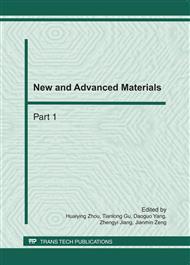p.1258
p.1263
p.1267
p.1271
p.1276
p.1281
p.1285
p.1289
p.1294
Effect of Heat-Setting Temperature on the Structure and Performance of Ultra-Fine Denier PET Full Drawing Yarn
Abstract:
The ultra-fine denier PET full drawing yarn (PET-FDY) with monofilament linear density equal to 0.38dTex was produced. During the practical process of ultrafine denier PET-FDY, the yarn should be heat-set at certain temperature following the drawing process in order to improve the mechanical properties and reduce the boiling water shrinkage. The influence of heat-setting temperature on the structure and performance of ultra-fine denier PET FDY was studied in this paper. With heat-setting temperature increasing, crystalline in PET FDY became perfect and crystallite size became bigger. According to the density method, crystallinity was augmented. Crystal orientation factor and overall orientation factor were both increased. The tenacity and tensile stress at 10% strain of PET FDY were increased and the breakage percentage and boiling water shrinkage were reduced with the heat-setting temperature increasing.
Info:
Periodical:
Pages:
1276-1280
Citation:
Online since:
February 2011
Authors:
Keywords:
Price:
Сopyright:
© 2011 Trans Tech Publications Ltd. All Rights Reserved
Share:
Citation:


